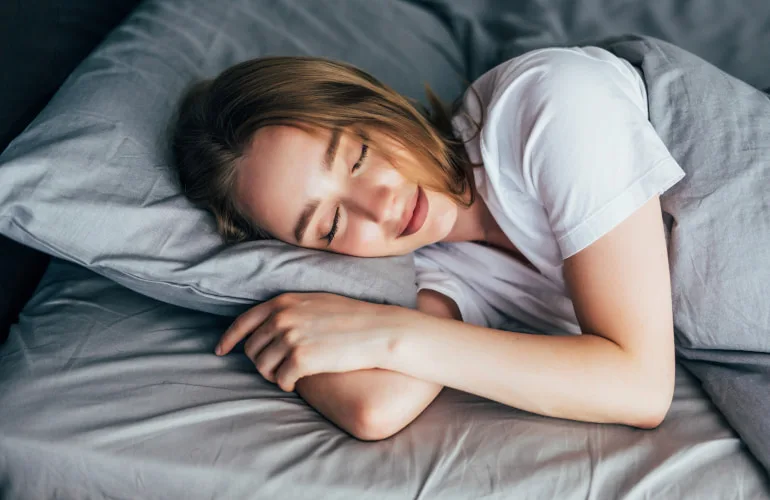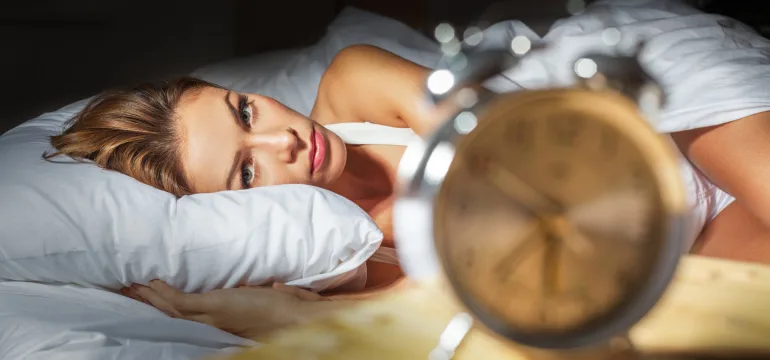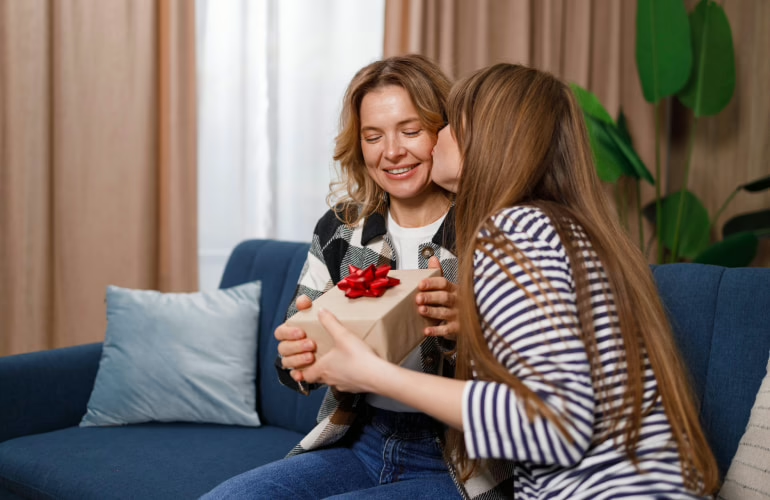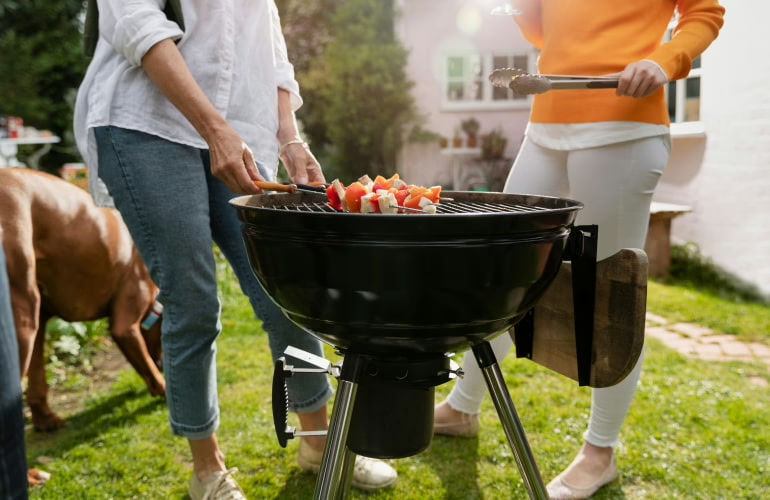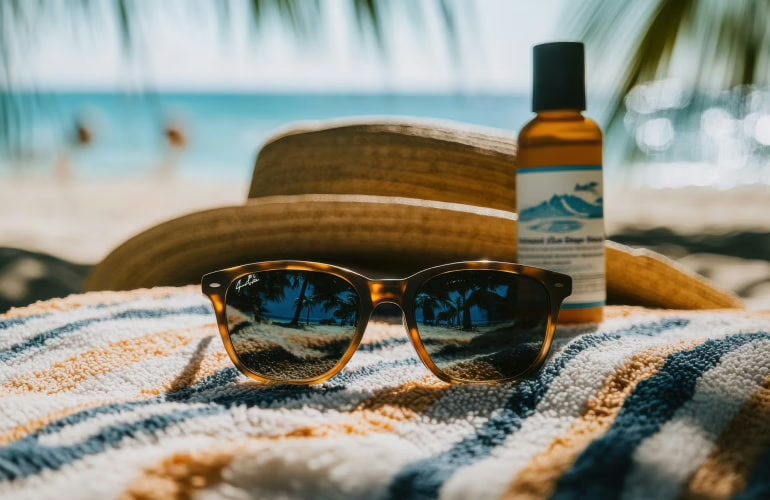Advertising Disclosure
Unlocking the Secrets to a Better Night’s Sleep
Everyone is endlessly on the move in this era. Everyone is in a hurry, working endlessly and spending little time on their health. And you know what else is bad for your health? Poor sleep!
Unfortunately, with the development of technology, many people watch videos or “hang out” on social networks before going to bed. And often, it is so addictive that people do not notice how late they go to bed. And so you wake up in the morning hoping to be refreshed and ready for a new day. But… It’s just a dream. It begs the question, “How to get more deep sleep“?
It’s not just time on the phone that affects sleep. There are a lot of other aspects that affect the quality of sleep. We’ve gathered important information and insights so you can fall asleep faster and wake up feeling great. Are you ready to discover the secrets to sleep better? Keep reading to change your nights and your life.
Optimal Bedroom Environment for Sleep
The first thing to start with when choosing sleeping solutions is the environment. Agreed: when it’s noisy, bright, or there are extraneous sounds, it’s complicated to sleep. It is difficult to sleep, and even if you fall asleep, your sleep will not be of high quality. Therefore, it is essential to follow certain rules that will help you finally get a good night’s sleep:
- Lighting. The first and most important thing is the lighting in the room where you plan to sleep. Our bodies are not stupid; they understand when it is day and night. And if there is a lot of light in the room, it can be difficult to fall asleep. The darkness triggers the production of melatonin, the hormone that causes sleepiness. So we sleep at night, and daytime sleep often causes a “wrecked” state. Consider purchasing a sleep mask or “blackout” type curtains. It will create the darkest possible atmosphere for your eyes and induce a feeling of sleep. Avoid blue light from screens at least an hour before bedtime.
- Temperature. The next important factor is temperature. Being too hot or cold can trigger feelings of insomnia. Your body temperature naturally decreases as you fall asleep. So one of the things to help you sleep better is to cool the room down to 60-67°F (15-19°C). Also, use only natural fabric bedding and pajamas to keep your body from overheating.
- Noise level. Even if you don’t wake up, noise can disrupt sleep cycles. Use a white noise machine or apps to mask annoying sounds. If you live in a noisy neighborhood, earplugs can help.
If you want to get enough sleep and have quality sleep and a fresh outlook in the morning, try to optimize these moments. These seemingly minor changes can maximize the quality of your sleep.
The Role of Light in Sleep Quality
Let’s look more closely at how light affects sleep. When searching for the best way to sleep, light is not your best friend. The different types of light can affect the quality of sleep in a good or bad way. For example, exposure to bright light, incredibly blue light, can disrupt our natural sleep patterns.
Blue light is the most dangerous light for sleep! And now we’re not talking about lamps; it’s the light of smartphones, laptops, and tablets. This type of light tricks our brain into thinking it’s still daytime. As a result, the body delays the release of melatonin, the sleep hormone.
But it would be wrong to say that all smartphones are bad. Thanks to various studies, screen developers have found a new feature. They introduce the ability to set a mode from evening to morning that removes this blue light. For example, on the latest Apple devices, a True Tone mode can be automatically set from evening to morning. At this time, the screen becomes yellowish to remove this blue light and eye strain and make sleep better.
To improve sleep quality, it is essential to control the light level not only on the screens of your appliances but also in the whole room. Try to get plenty of natural sunlight throughout the day. It will help synchronize your internal clock. As evening falls, start to dim the lights in your home. Use warm, soft lighting or turn on nightlights.
Finding the Right Temperature for Sleep
The next aspect to consider in detail is temperature. Yes, we have already written about it, but we can go deeper into this topic. The temperature in your bedroom significantly affects how well you sleep. Most experts agree that the ideal temperature for sleep is between 60 and 67 degrees Fahrenheit. This cooler range helps your body naturally lower your core temperature for sleep.
Maintaining the right temperature is one of the most important things to do before sleep. It is especially important to pay attention in the summer when the heat can take a heavy toll on your body. If you have an air conditioner, set it to a maintenance temperature. Alternatively, you can use a cooling mattress pad to help regulate your body temperature.
Remember that the ideal sleep temperature for each person may be slightly different. Pay attention to how you feel and adjust to it.
Dietary Habits That Promote Better Sleep
Have you ever heard the phrase “you are what you eat”? There is a specific meaning to that phrase. Food, water, and other supplements can make your sleep better. Therefore, it is essential to realize that certain foods and beverages significantly impact your sleep. Foods and drinks that interfere with sleep:
- The very first and most basic is caffeine. Not for nothing; they say that coffee in the morning is refreshing because it contains a lot of caffeine. But different energy drinks, which young people nowadays are very fond of, are also terrible for your sleep.
- The next no less well-known factor is alcohol. Yes, at first, alcohol can cause a slight feeling of sleepiness. But afterward, it often leads to sleep disturbance. You want to have fun and have fun, but not sleep.
- The third enemy of sleep is spicy or heavy food close to bedtime. In general, eating food close to bedtime causes some discomfort. These problems can prevent you from falling asleep or lead to restless sleep.
And for sure, now you want to know how to get a deeper sleep. Well, we know some foods that contain nutrients. These are the ones that help you sleep better. Here are some of them:
- Tryptophan-rich foods like turkey, chicken, and milk. They promote the production of sleep-inducing hormones.
- Complex carbohydrates, such as whole grains, will help you feel sleepy. They pair well with tryptophan-rich foods and create a favorable snack.
- Foods high in magnesium, such as nuts and seeds. They can also improve sleep quality.
Making smart food choices is one of the things to do before sleep. It will help you get a better night’s sleep.
The Impact of Daily Routines on Sleep
If you are ignoring your daily routine, we advise you to forget about it. It is a stable, properly set routine that promotes better well-being and is the best way to sleep well.
Your work schedule also plays a role in your sleep patterns. A consistent work schedule helps regulate your body’s internal clock. If you work in shifts, try to maintain a regular sleep schedule on the weekends. It will help your body adjust better.
We recommend creating a proper bedtime routine before you go to bed. This way, you can signal your body that it’s time to rest. Start by establishing a regular bedtime and stick to it. Reading a book, listening to quiet music, or stretching lightly can help you relax before bedtime. Some people are helped by using diffusers for sleep.
Avoid stressful conversations or activities right before bed. Instead, focus on things that make you feel calm and content. With the right approach to bedtime preparation, you will find it easier to drift off to sleep and enjoy quality rest.
Sleep Aids and Tools: What Works?
Many people enlist the help of sleep aids to get a better night’s rest. Let’s take a look at some popular options and how well they work.
- White noise devices. It is a fairly common choice. They create a constant background sound that masks interfering noises. Many users find them useful, especially in noisy environments.
- Essential oils. Are you thinking about how to sleep better at night naturally? Essential oils, especially lavender, are often used for relaxation. Many people enjoy using them.
- Weighted blankets. This particular method has been gaining a lot of momentum in recent years. They provide a gentle pressure that some people find soothing. Studies show that for some people, they can help reduce anxiety and improve sleep.
While these sleeping solutions can be helpful, they are not magic solutions. What works best depends on the individual. It’s worth trying different options to see what helps you sleep better.
Unlike various trends, Shoper Advocate knows precisely how to get you to sleep, what to choose as a gift, and which book is best to read. If you want to learn more about this, visit our website.
